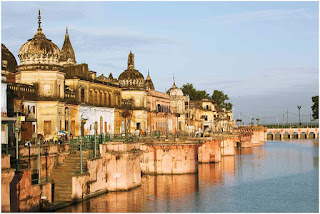Reading Notes: Ramayana Part A
In King Dasharatha, we are introduced to Dashartha, the king of Koshala. Despite Dashartha's success, he was filled with sorrow since none of his three wives, Kaushalya, Kaikeyi, and Sumitra, had given him a son. Dasharatha decides to perform a horse sacrificed to the gods, so he would be given a son. The gods came and promised Dasharatha four sons. In Rama: Avatar of Vishnu, we discover all three of the wives have sons. Kaushalya with Rama, Kaikeyi with Bharata, and Sumitra with Lakshmana and Shatrughna. Rama is actually the god Vishnu as a human avatar on earth to defeat Ravana. Once they have grown, Vishvamitra leads Rama and Lakshmana to defeat two rakshasas, Maricha and Subahu. Eventually, Rama meets Sita, daughter of Janaka. Janaka, King of Mithila, holds a challenge for men who want to win Sita. Rama wins the challenge and wins Sita as his bride. In Parashurama, Rama is given the bow of Vishnu by Parashurama. Rama marries Sita and all of his brothers marry women from Janaka's family. Lakshama marries Urmila, Bharat marries Mandavi, and Shatrughna marries Shrutakirti. Rama is destined to become the new king, which upsets Kaikeyi. Kaikeyi convinces Dasartha that Rama should be banished, and once Rama is told, he listens to his goes to the jungle of Dandaka for fourteen years. Laskshmana and Sita follow Rama into exile. Dasaharatha eventually dies a sorrowful death, a consequence from karma.
For the storytelling assignment this week, I think I want to focus on the love story between Rama and Sita. Their story reminds me a lot of a fairytale storyline. Rama winning a challenge to win Sita and is on his path to become king of Koshala, but is prevented by Kaikeyi. Sita also remained with Rama when he was exiled instead of abandoning him because she loves him so much. This is also the first story where karma is a theme and used a consequence. I wonder how karma appears when it is used as a reward instead of consequence.
Source: Indian Myth and Legend by Donald A. Mackenzie (1913)
For the storytelling assignment this week, I think I want to focus on the love story between Rama and Sita. Their story reminds me a lot of a fairytale storyline. Rama winning a challenge to win Sita and is on his path to become king of Koshala, but is prevented by Kaikeyi. Sita also remained with Rama when he was exiled instead of abandoning him because she loves him so much. This is also the first story where karma is a theme and used a consequence. I wonder how karma appears when it is used as a reward instead of consequence.
Ayodhya (Source:Flickr)
Source: Indian Myth and Legend by Donald A. Mackenzie (1913)




Comments
Post a Comment